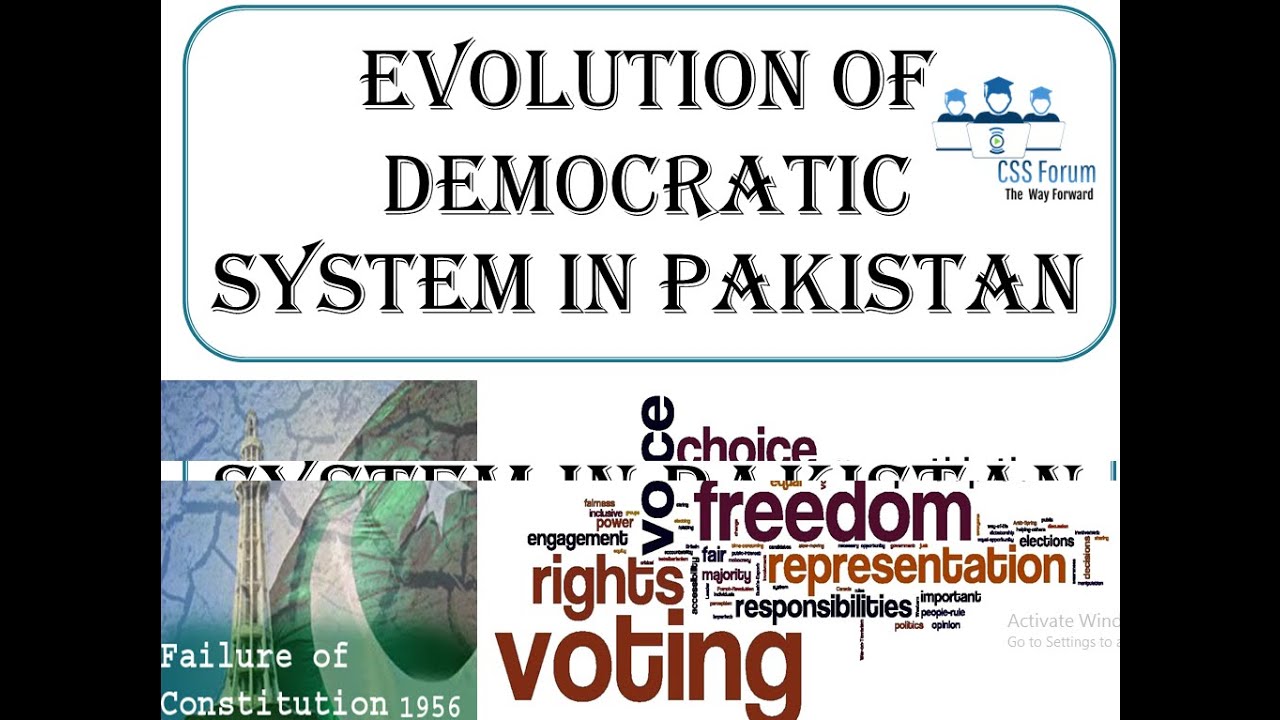XV. Evolution of Democratic System in Pakistan

Pakistan has a fierce political history set apart by successive military mediations and times of tyrant rule. Since its freedom in 1947, Pakistan has encountered three military overthrows and a few occurrences of military regulation. Notwithstanding, there have likewise been times of majority rule administration in Pakistan, despite the fact that they have been set apart by flimsiness and struggle.
The principal constitution of Pakistan was taken on in 1956, yet it was annulled in 1958 by the tactical tyrant Ayub Khan. After Ayub Khan’s system, Pakistan saw a time of vote based rule during the 1970s under Zulfiqar Ali Bhutto, who was later toppled in a tactical upset in 1977 by Broad Zia-ul-Haq. General Zia-ul-Haq governed Pakistan for north of 10 years, during which he suspended the constitution and established military regulation.
In 1988, General Zia-ul-Haq passed on in a plane accident, and Pakistan got back to a majority rule government. Benazir Bhutto, the girl of Zulfiqar Ali Bhutto, was chosen as the principal female state leader of Pakistan in 1988. Notwithstanding, her administration was excused in 1990 by the then-president Ghulam Ishaq Khan on charges of defilement and fumble.
During the 1990s, Pakistan saw a time of political flimsiness and incessant changes of government. Both Benazir Bhutto and Nawaz Sharif, the other major political head of the time, filled in as state leaders two times each, and were each excused on charges of debasement and maltreatment of force.
In 1999, General Pervez Musharraf organized a tactical overthrow and assumed command over the public authority. Musharraf governed Pakistan for almost 10 years, during which he confronted critical resistance from ideological groups, common society associations, and the legal executive. In 2008, Musharraf surrendered as leader of Pakistan and escaped the nation, preparing for the reclamation of vote based rule.
From that point forward, Pakistan has held a few decisions and seen a serene exchange of force starting with one popularity based government then onto the next. Notwithstanding, the majority rule framework in Pakistan is as yet delicate, and there have been claims of discretionary extortion and control. The tactical keeps on assuming a huge part in Pakistani governmental issues, and there are worries about its effect on the majority rule process.
Lately, Pakistan has seen the ascent of new ideological groups and social developments, which have tested the conventional political first class and requested more noteworthy responsibility and straightforwardness in administration. In spite of these difficulties, there are trusts that Pakistan’s vote based framework will proceed to advance and turn out to be more steady and hearty over the long run.